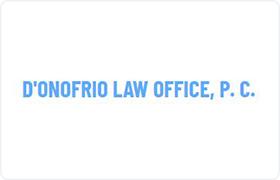Beaver Falls Estate Lawyer, Pennsylvania
Sponsored Law Firm
-
 x
x

Click For More Info:
-
D'Onofrio Law Office, P.C.
651 Holiday Drive Foster Plaza 5, Ste. 400 Pittsburgh, PA 15220» view mapEstate Law Helping You Plan For The Future
Contact my office today to schedule your initial complimentary consultation and allow me to solve your problems for you.
800-975-5870
Felicia E Santillan
Social Security, Wills & Probate, Estate Planning, Divorce & Family Law
Status: In Good Standing Licensed: 24 Years
FREE CONSULTATION
CONTACT John D'Onofrio Pittsburgh, PA
John D'Onofrio Pittsburgh, PA Practice AreasExpertise
Practice AreasExpertise
